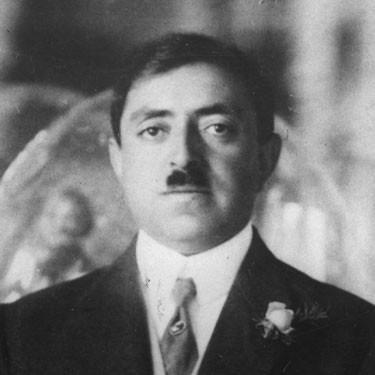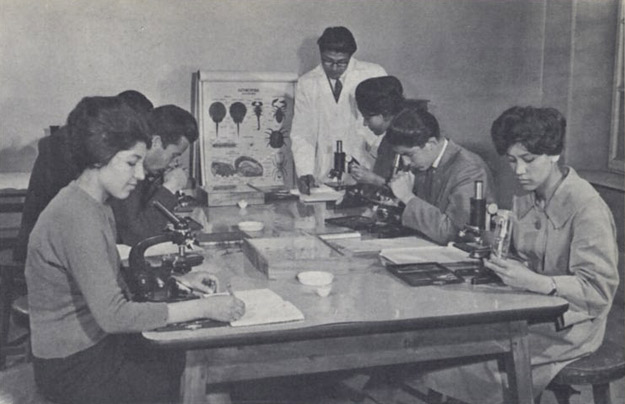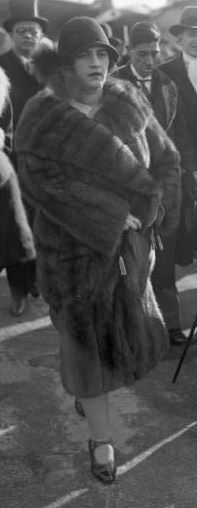|
Darul Aman Palace
Darul Aman Palace ( ps, د دارالامان ماڼۍ; prs, قصر دارالامان; 'Abode of Peace' or, in a double meaning, 'Abode of Amanllah) is a three-story-tall palace located in Darulaman, which about south-west of the centre of Kabul, Afghanistan. Surrounding the palace are the following buildings: the National Assembly, the National Museum of Afghanistan and the Afghan International University. The 150 room Darul Aman Palace was originally built in the 1920s, during the reign of Amanullah Khan. Restored national treasure a bright spot for Afghans as they celebrate independence day holiday ('' Stars and Stripes'', 21 August 2020). https://www.stripes.com/theaters/middle_east/restored-national-treasure-a-bright-spot-for-afghans-as-they-celebrate-independence-day-holiday-1.642045 He reigned as Emir of Afghanistan between February 1919 and June 1926, and as King of Afghanistan between June 1926 and January 1929. The palace was severely damaged during the 1990s civ ... [...More Info...] [...Related Items...] OR: [Wikipedia] [Google] [Baidu] |
Afghan Independence Day
Afghan Independence Day is celebrated as a national holiday in Afghanistan on 19 August to commemorate the Anglo-Afghan Treaty of 1919 and relinquishment from British protectorate status. The treaty granted a complete neutral relation between Afghanistan and Britain. Afghanistan had become a British protectorate after the Treaty of Gandamak was signed (1879) in the Second Anglo-Afghan War. Background The First Anglo-Afghan War (1839–42) led to the British force taking and occupying Kabul. After this, due to strategic errors by Elphinstone, the British force was annihilated by Afghan forces under the command of Akbar Khan somewhere at the Kabul–Jalalabad Road, near the city of Jalalabad. After this defeat, the British-Indian forces returned to Afghanistan on a special mission to rescue their prisoners of war (POWs) and afterward withdrew until coming back in order to commence the Second Anglo-Afghan War. The Second Anglo-Afghan War (1878–80) first led to a Bri ... [...More Info...] [...Related Items...] OR: [Wikipedia] [Google] [Baidu] |
Emir Of Afghanistan
This article lists the heads of state of Afghanistan since the foundation of the first modern Afghan state, the Hotak Empire, in 1709. History The Hotak Empire was formed after a successful uprising led by Mirwais Hotak and other Afghan tribal chiefs from the Kandahar region against Mughal and Safavid Persian rule. After a long series of wars, the Hotak Empire was eventually replaced by the Durrani Afghan Empire, founded by Ahmad Shah Durrani in 1747. After the collapse of the Durrani Empire in 1823, the Barakzai dynasty founded the Emirate of Kabul, later known as the Emirate of Afghanistan. The Durrani dynasty regained power in 1839, during the First Anglo-Afghan War, when former ruler Shah Shujah Durrani seized the throne under the British auspices. Shah Shujah was assassinated in 1842, following the British retreat. Afterwards the Barakzai dynasty regained power, eventually transformed the Emirate into the Kingdom of Afghanistan in 1926, and ruled the country (wi ... [...More Info...] [...Related Items...] OR: [Wikipedia] [Google] [Baidu] |
Afghan National Army
Afghan may refer to: *Something of or related to Afghanistan, a country in Southern-Central Asia *Afghans, people or citizens of Afghanistan, typically of any ethnicity ** Afghan (ethnonym), the historic term applied strictly to people of the Pashtun ethnicity **Ethnic groups in Afghanistan, people of various ethnicities that are nationally Afghan *Afghan Hound, a dog breed originating in the mountainous regions of Afghanistan and the surrounding regions of Central Asia *Afghan (blanket) *Afghan coat *Afghan cuisine People * Sediq Afghan (born 1958), Afghan philosopher * Asghar Afghan (born 1987), former Afghan cricketer * Afgansyah Reza (born 1989), Indonesian musician also known as "Afgan" * Afghan Muhammad (died 1648), Afghan khan in modern day Russia * Azad Khan Afghan (died 1781), Afghan Commander and Ruler Places * Afghan, Iran, a village in Sistan and Baluchestan Province, Iran Other uses * Afghan (Australia), camel drivers from Afghanistan and Pakistan who came to ... [...More Info...] [...Related Items...] OR: [Wikipedia] [Google] [Baidu] |
Mujahideen
''Mujahideen'', or ''Mujahidin'' ( ar, مُجَاهِدِين, mujāhidīn), is the plural form of ''mujahid'' ( ar, مجاهد, mujāhid, strugglers or strivers or justice, right conduct, Godly rule, etc. doers of jihād), an Arabic term that broadly refers to people who engage in ''jihad'' (), interpreted in a jurisprudence of Islam as the fight on behalf of God, religion or the community ('' ummah''). The widespread use of the word in English began with reference to the guerrilla-type militant groups led by the Islamist Afghan fighters in the Soviet–Afghan War (see Afghan mujahideen). The term now extends to other jihadist groups in various countries such as Myanmar (Burma), Cyprus, and the Philippines. Early history In its roots, the Arabic word ''mujahideen'' refers to any person performing ''jihad''. In its post-classical meaning, ''jihad'' refers to an act that is spiritually comparable in reward to promoting Islam during the early 600s CE. These acts could be ... [...More Info...] [...Related Items...] OR: [Wikipedia] [Google] [Baidu] |
Shahnawaz Tanai
Lieutenant General Shahnawaz Tanai ( Russian: Шахнаваз Танай, 1950 – 7 March 2022) was an Afghan politician and general officer who served as the Chief of General Staff of the Afghan National Army until his defection to neighbouring Pakistan following a failed coup d'état in 1990. Besides commanding the Afghan National Army during the Soviet-Afghan War, his command assignments included the command of the artillery and director of military intelligence as well as serving as minister of defense under President Mohammad Najibullah. He was a hardline member of the Khalq faction of the People's Democratic Party of Afghanistan, and leader of at least the majority of the Khalqist faction since its former leader Sayed Mohammad Gulabzoy was exiled as Ambassador to the Soviet Union as part of the political preparation of the Soviet pullout from Afghanistan in September 1988. A pillar of the communist regime, Tanai later attempted a coup against his former friend and P ... [...More Info...] [...Related Items...] OR: [Wikipedia] [Google] [Baidu] |
Saur Revolution
The Saur Revolution or Sowr Revolution ( ps, د ثور انقلاب; prs, إنقلاب ثور), also known as the April Revolution or the April Coup, was staged on 27–28 April 1978 (, ) by the People's Democratic Party of Afghanistan (PDPA) and overthrew Afghan president Mohammed Daoud Khan, who had himself taken power in the 1973 Afghan coup d'état and established an autocratic one-party system in the country. Daoud and most of his family were executed at the Arg in the capital city of Kabul by PDPA-affiliated military officers, after which his supporters were also purged and killed. The successful PDPA uprising resulted in the creation of a socialist Afghan government that was closely aligned with the Soviet Union, with Nur Muhammad Taraki serving as the PDPA's General Secretary of the Revolutionary Council. or is the Dari-language name for the second month of the Solar Hijri calendar, during which the events took place. The uprising was ordered by PDPA member Hafi ... [...More Info...] [...Related Items...] OR: [Wikipedia] [Google] [Baidu] |
Ministry Of Defence (Afghanistan)
The Ministry of Defense ( prs, وزارت دفاع ملی , ps, د ملي دفاع وزارت) is the Cabinet of Afghanistan, cabinet Ministry (government department), ministry of Afghanistan responsible for overseeing the country's military (currently the Afghan Armed Forces, Islamic Emirate Armed Forces). The ministry's headquarters is located in Kabul. List of ministers The Islamic Republic period During the Islamic Republic of Afghanistan (2004–2021), the defense minister was nominated by the President of Afghanistan and the National Assembly (Afghanistan), National Assembly made the final approval. One of the functions of the Defense Ministry during that period was the continuance of Disarmament, disarming insurgent groups, through programmes such as the Afghan New Beginnings Programme (which included the Rehabilitation and reintegration of child soldiers, rehabilitation and reintegration of Military use of children#Afghanistan, child soldiers). These militant groups coa ... [...More Info...] [...Related Items...] OR: [Wikipedia] [Google] [Baidu] |
Kabul University
Kabul University (KU; prs, دانشگاه کابل, translit= Dāneshgāh-e-Kābul; ps, د کابل پوهنتون, translit=Da Kābul Pohantūn) is one of the major and oldest institutions of higher education in Afghanistan. It is in the 3rd District of the capital Kabul, near the Ministry of Higher Education (Afghanistan), Ministry of Higher Education. It was founded in 1931 by Mohammed Nadir Shah, King Mohammed Nadir Shah, whose Prime Minister of Afghanistan, prime minister at the time was his younger brother, ''Sardar'' Mohammad Hashim Khan. Approximately 22,000 students attend Kabul University. In August 2021, before the 2021 Taliban offensive, Taliban takeover, nearly half were female. The university reopened in February 2022, with classes separated by sex but relatively few changes to the curriculum. History Early history Kabul University was established in 1932 during the reign of Mohammed Nadir Shah , King Mohammed Nadir Shah and during the government of Prime M ... [...More Info...] [...Related Items...] OR: [Wikipedia] [Google] [Baidu] |
Habibullah Kalakani
Habibullah also spelled Habib Ullah, Habibollah, Habeeb-Allah etc. ( ar, حَبِيْبَُ ٱلله), is a male Muslim given name meaning in ''Beloved of God'', stemming from the male form of the name Habib. It may refer to: People *Raja Sir Chulan ibni Almarhum Sultan Abdullah Muhammad Shah Habibullah, known as Raja Chulan (1869–1933), member of the Perak royal family (Malaya) *Habibullah Khan, Emir of Afghanistan *Muhammad Habibullah (1869–1948), Indian nobleman and statesman *Habibullah Khan (1872–1919), King of Afghanistan * Habibullāh Kalakāni (ca. 1890–1929), Emir of Afghanistan * Khwaja Habibullah (1895–1958), Nawab of Dhaka *Habibullah Khan Tarzi (born 1896), Afghan diplomat * Khan Habibullah Khan (1901–1978), Pakistani politician and High Court judge *Habibullah Bahar Chowdhury (1906–1966), politician and writer from East Bengal *Amir Habibullah Khan Saadi (1909–1989), Indian freedom fighter and Pakistani politician * Habibullah Khan Khattak (1913–19 ... [...More Info...] [...Related Items...] OR: [Wikipedia] [Google] [Baidu] |
Sarwar Sultana Begum
Sarwar Sultana Begum or (Ulya (Ulli) Hazrat) (1875 – 1965), was an Afghan royal consort. She was married to Habibullah Khan (r. 1901–1919), and was the mother of king Amanullah Khan (r. 1919–1929). Life Early life and marriage She was the daughter of Loinab Sher Dil Khan of Shaghasi, Governor of Balkh. Her sister, Tajawar Sultana married Sardar Mohammad Ali Khan Mohammadzai and they had two sons, Sardar Younus Khan and Sardar Mohammad Wali Jan. Her brother, Loinab Khush Dil Khan (born 1844) was the father of Loinab Ali Ahmad Khan. He was married to Princess Sahira Begum Siraj Al Banat, Sarwar Sultana's daughter. She was one of the many wives of king Habibullah Khan. Like his predecessors, Habibullah Khan had four official wives and a large number of unofficial wives as well as slave concubines in the royal Harem Sara palace complex in Kabul. Her husband was known to have even more wives than was common, having at least 44 official or unofficial wives, among them Ulya Jana ... [...More Info...] [...Related Items...] OR: [Wikipedia] [Google] [Baidu] |
Soraya Tarzi
Soraya Tarzi (Pashto/Dari: ملکه ثريا; November 24, 1899 – April 20, 1968) was the first queen consort of Afghanistan as the wife of King Amanullah Khan. She played a major part in the modernization reforms of Amanullah Khan, particularly in regard to the emancipation of women. Born in Syria, she was educated by her father, who was the Afghan leader and intellectual ''Sardar'' Mahmud ''Beg'' Tarzi. She belonged to the Mohammadzai Pashtun tribe, a sub-tribe of the Barakzai dynasty. As Queen of Afghanistan, she was not only filling a position – but became one of the most influential women in the world at the time. Owing to the reforms King Amanullah Khan instituted, the country's religious sects grew violent. In 1929, the King abdicated in order to prevent a civil war and went into exile. Their first stop was India, then part of the British Empire. Early life and family background Suraiya Shahzada Tarzi was born on 24 November 1899, in Damascus, Syria, then part of ... [...More Info...] [...Related Items...] OR: [Wikipedia] [Google] [Baidu] |
Rora Asim Khan
Aurora Nilsson, also known as ''Rora Asim Khan'' (1 January 1894 – 1972), was a Swedish writer who became known for her autobiographical depiction, ''Flykten från harem'' ("Escape from Harem"), about her experiences in Afghanistan during her marriage to an Afghan diplomat, Asim Khan, in the 1920s. A novel by Thomas Löfström is based upon her story. Her autobiography gives a valuable insight in the life of a harem in 1920s Afghanistan. Her divorce (1927) was at the time unique in Afghanistan. Early life and marriage Nilsson was born Västerhaninge. In 1925, she was studying art in Berlin; the Golden Twenties was a vibrant period in the history of the city. There she met and married Asim Khan, an Afghan who was the son of a former government minister, who was studying technique at the expense of the Afghan government. The Afghan embassy acknowledged the marriage after Nilsson signed a statement that she would accept Afghan customs and, some time in the future, convert ... [...More Info...] [...Related Items...] OR: [Wikipedia] [Google] [Baidu] |







